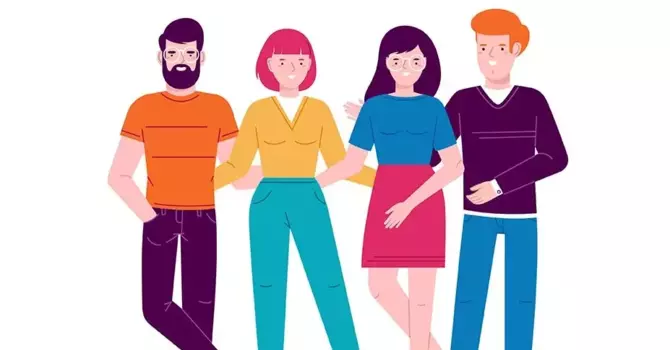
To many LGBTQIA+ individuals, existing is finding ways to survive in a world that wasn't designed for us. From the microaggressions we face in everyday interactions to the deeper traumas of rejection, isolation, or erasure, we most commonly experience being on the receiving end of messages that tell us who we should be—rather than what we are.
Internal Family Systems (IFS) therapy is new. Revolutionary. Going home—to oneself.
What Is IFS Therapy?
IFS, or Internal Family Systems, is a treatment approach developed by Dr. Richard Schwartz. It's based on the idea that we all have a system of "parts" within us—like inner voices, emotions, or roles we've taken on to cope with life.
Instead of viewing these pieces as things to be fixed, IFS enables us to become acquainted with them in curiosity and compassion. These pieces may be:
* A defensive part that's always on alert
* A people-pleasing part that dreads rejection
* A hurt part that still harbors shame from childhood
* A righteous advocate part that desires justice
At the heart of all of this is the Self—the steady, wise, and peaceful heart of who you are. IFS therapy helps us connect with this Self and develop healing relationships with all of the parts inside of us.
Why IFS Works So Well for LGBTQIA+ Folks
For LGBTQIA+ individuals, identity development is always non-linear. Most of us have been forced to split off or suppress parts of ourselves just to survive—whether that was concealing our queerness, denying gender, or suppressing shame, grief, or rage.
IFS provides us with a safe, affirming framework to:
* Release internalized shame-imposed on us by family, religion, or society
* Repair past trauma such as bullying, rejection, and discrimination
* Honor many selves and lives in ourselves—such as the intersection of race, gender, sexuality, and neurodivergence
* Construct the Self, so we can guide our inner system with clarity, confidence, and compassion
* Celebrating our wholeness, not in spite of our pieces, but because* of them
Coming Out, Transitioning, and Self-Discovery Through IFS
Coming out, transitioning, or exploring your identity later in life can activate a swirl of parts—fearful, protective, curious, even angry ones. IFS doesn’t judge them. It invites us to listen.
A part might say: “You’re too old to come out now.”
Another might whisper: “What if they don’t accept me?”
A deeper one might cry: “I’ve waited my whole life to feel seen.”
IFS helps you honor all of these, find out where they got their stories, and welcome them graciously to trust your Self—that brave, perceptive part of you who knows your truth.
IFS Is Confirming Therapy—Not Conversion or Control
Here at Inclusive Therapy Group, we believe in therapy that embraces the you that you are, and not the you that the world tells you to be. IFS doesn't pathologize your queerness or your transness. It doesn't try to fix or eliminate you. Instead, it recognizes that your identity is valid, your pain is real, and your recovery is possible.
Last Thoughts: Coming Home to All of You
To be LGBTQIA+ in a world that has a tendency to get us wrong may make us feel broken or lost. But you are not broken—you are beautifully complex.
IFS therapy helps you retrieve the parts of you who were silenced, shamed, or exiled. It helps you listen to the voices in yourself with love. It helps you come home—not to the individual the world required you to be, but to the wholeness you always were.
Want to do IFS therapy with an affirming therapist?
Our Inclusive Therapy Group therapists are licensed to treat LGBTQIA+ clients with IFS and other compassionate approaches.
Shaina Crisp
https://inclusivetherapygroup.com/users/shaina-crisp
Kasey Benthin-Staley
https://inclusivetherapygroup.com/users/kasey-benthin-staley
Emily Marziana
https://inclusivetherapygroup.com/users/emily-marziani
https://inclusivetherapygroup.com/blog/coming-home-to-ourselves





